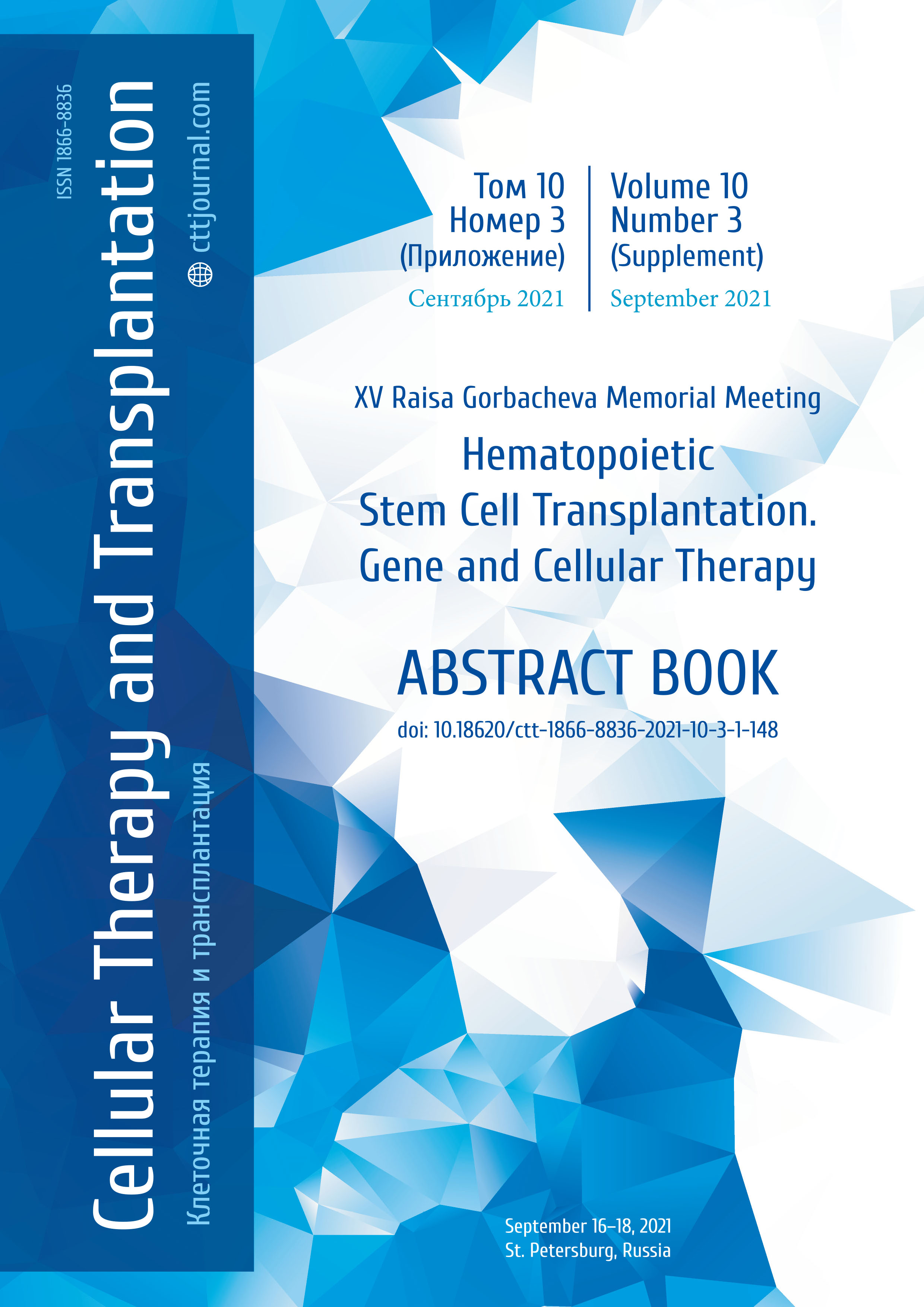GC-11. Complications after chimeric antigen receptor T-cell therapy in adults
Antonina E. Shchekina, Gennady M. Galstyan, Olga A. Gavrilina, Zalina T. Fidarova, Vera V. Troitskaya, Vera A. Vasilyeva, Elena N. Parovichnikova, Michael A. Maschan
National Medical Research Center of Hematology, Moscow, Russia
Correspondence:
Antonina E. Shchekina, phone: +7 (916) 330-96-10, e-mail: shekina_ae@mail.ru
Summary
Chimeric antigen receptor T-lymphocytes (CAR-T) therapy is a highly effective method in treating refractory B-cell lymphomas and acute lymphoblastic leukemias (ALL). However, CAR-T therapy can be associated with the development of severe life-threatening complications. Cytokine release syndrome (CRS) and immune effector cell-associated neurotoxicity syndrome (ICANS) are the most serious toxicities. The aim of this study is to evaluate the nature, frequency and treatment methods of CAR-T therapy complications in adult patients.
Materials and methods
The prospective analysis included 9 CAR-T therapy procedures, which were performed in 5 patients (3 women, 2 men) with B-cell lymphomas and B-ALL at the age from 19 to 38 years (median – 29 years). 1 patient with relapse B-ALL underwent 4 CAR-T-therapy procedures, 1 patient with refractory diffuse large B-cell lymphoma underwent 2 procedures. In 3 patients with extramedullary relapses of B-ALL (1 patient with neuroleukemia relapse), CAR-T therapy procedures were performed once. The dose and type of CAR-T therapy were determined individually. All patients before CAR-T therapy received tocilizumab and were observed in the intensive care unit (ICU). The timing of complications, the types of complications based on the accepted criteria1 and the effectiveness of the treatment of complications of CAR-T therapy were recorded.
Results
CRS developed in 4 of 9 CAR-T therapy procedures. The incidence of severe CRS (grade ≥3) was 25%. All patients with CRS had a fever >39°C. Hypotension was presented in 3 of 4 cases of CRS. Shock with multiple organ dysfunction developed in 1 case, in which vasopressor agents, extracorporeal cytokine adsorption and hemodiafiltration were used. Hypoxemia was registered in 2 of 4 cases, none of patients required mechanical ventilation. The median time to the onset of CRS was +6.5 days (range 4-7) after the transfusion of CAR-T cells, the median duration of CRS was 4.5 days (range 2-5 days). Tocilizumab (8 mg/kg) was used in 2 cases of CRS as single injections. Hypofibrinogenemia was observed in 8 of 9 cases of CAR-T therapy (median 1.2 g/l, range 0.8-1.9 g/l). In 6 of 9 cases, hyponatremia was noted (median 124 mmol/l, range 122-132 mmol/l). 1 patient with neuroleukemia developed ICANS grade 3 on +7 day. Cerebrospinal fluid (CSF) cytosis was 77 cells/ml (CAR-T cells were detected in the CSF by immunophenotyping). ICANS was resolved within 24 hours after the initiation of dexamethasone in dose 20 mg/m2/day. Tumor lysis syndrome developed in 2 of 9 cases, septic shock developed in 1 case and caused the patient’s death. The overall survival rate after CAR-T therapy was 89%.
Conclusions
The incidence of serious CAR-T therapy complications (CRS, ICANS, septic) requiring intensive differential diagnosis and treatment can reach 55%.
Reference
Lee DW, Santomasso BD, Locke FL, et al. ASTCT Consensus Grading for Cytokine Release Syndrome and Neurologic Toxicity Associated with Immune Effector Cells. Biol Blood and Marrow Transplant. 2019; 25 (4): 625-38. doi: 10.1016/j.bbmt.2018.12.758
Keywords
CAR-T therapy, cytokine release syndrome, neurotoxicity syndrome.


